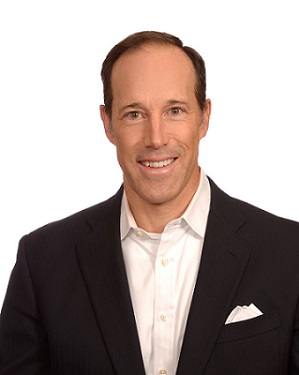Jamie Worrell is co-founder of Strategic Retirement Partners and managing director of its Northeast office, where he and his team provide investment advice and consulting to institutions, employers and individuals.
Worrell spoke with PBN about Fidelity Investment Inc.’s recent announcement to allow investments in bitcoin as part of employer 401(k) plans, what concerns that raises and the impact that will have on other retirement plan options.
PBN: How significant is this announcement by Fidelity?
WORRELL: If you look at the typical 401(k) or 403(b) plan today, it offers employees a range of diversified mutual funds in which to invest. About 20% of employers, mostly only larger ones, offer a self-directed “brokerage window” option to enable employees to access a broader range of investments, which may include speculative, less-diversified investment options. And when it is offered, only 3%-5% of employees actually use that brokerage window to access investments outside the core menu of funds.
If you think of cryptocurrency as an option similar to a brokerage window option, there’ll be a lot of talk about it, but when all is said in done, fewer than 10% of plans are likely to offer crypto, and fewer than 5% of retirement plan participants are likely to invest in it.
For plans that offer crypto, Fidelity is limiting to 20% the amount that participants can invest in crypto, so that too will limit how much actually ends up being invested in crypto within the retirement plan.
PBN: If the impact may be minimal in terms of participation, why is this causing such a stir?
WORRELL: Crypto is super volatile, without a long track record and is subject to evolving regulations. We don’t have long-term stats on its volatility or how it behaves in different markets or relative to different asset classes. People are concerned about it because it has many unknowns, although the one thing we do know is that it has been volatile. Critics don’t want to see workers lose their nest egg, even if investing in crypto is limited to only 20% of their account balance.
PBN: What would you advise an employer considering this option to do?
WORRELL: I would advise them to look very carefully at the U.S. Department of Labor’s bulletin that came out after Fidelity announced and make sure the client understands their fiduciary duty and the standard of care they are held to, which is one of prudence.
The Department of Labor said in their bulletin they have “serious concerns” regarding the prudence of this and that “you know, we’ve got our eye on you if you’re going to offer this and really hold your feet to the fire.”
And they also note that as a plan fiduciary, you’re personally liable for losses due to any fiduciary breaches, so if you’re an HR [human resources] director or a CFO [chief financial officer] and something goes wrong and you’re sued, they can come after you and your assets, your house, your boat, etc.
Before you do this, check with your independent adviser or attorney and make sure you understand what you’re getting into and that you are confident the decision is prudent. Whether or not it is prudent becomes somewhat of a judgment call, and you will want to document the reasons for your decision.
PBN: Fidelity in announcing this cited a study they did last year suggesting that 30% of institutional investors are interested in investing in digital assets. Do you think now that this option is available and what has come out by the Department of Labor since that 30% of companies are going to sign up? Do you have a sense of realistically what percentage of employers would do this?
WORRELL: I think there is a lot of interest and that is great. While 30% may have expressed interest, nowhere near that will act, especially with the response the Department of Labor gave. Thirty percent of investors may be interested but I think only 5% will sign up. And that’s an aggressive estimate until we have more clarity and certainty around how this is regulated.
PBN: And two of Fidelity’s major competitors, Vanguard and T. Rowe Price, have already said they won’t be following suit. How do you think Fidelity’s move will influence the rest of the industry?
WORRELL: This was a bold stroke for Fidelity. Even though their peers say they’re not going to offer it, I am certain there are a lot of internal meetings going on behind the scenes right now at those peers, where they’re saying “we need a strategy around crypto exposure. We need to understand it better.” I wouldn’t be surprised if Fidelity’s peers observe and study what happens while trying to come up with a strategy that gives them a different way to approach this.
Nancy Lavin is a PBN staff writer. You may reach her at Lavin@PBN.com.












I am a client of Mr. Worrell’s advisory firm and have found him to be a most responsible and effective advisor. I believe his statements on this controversial subject are prudent. TA